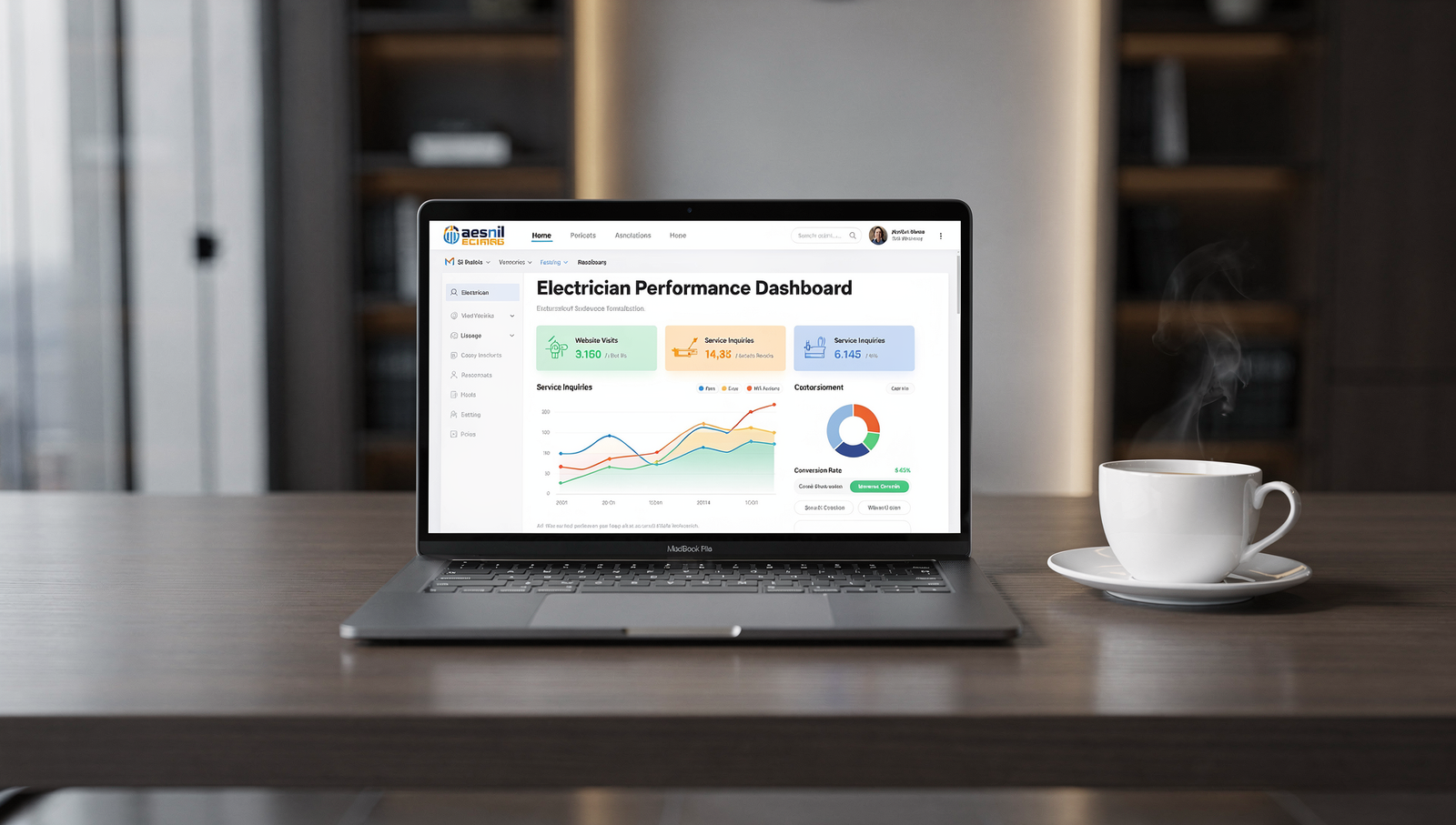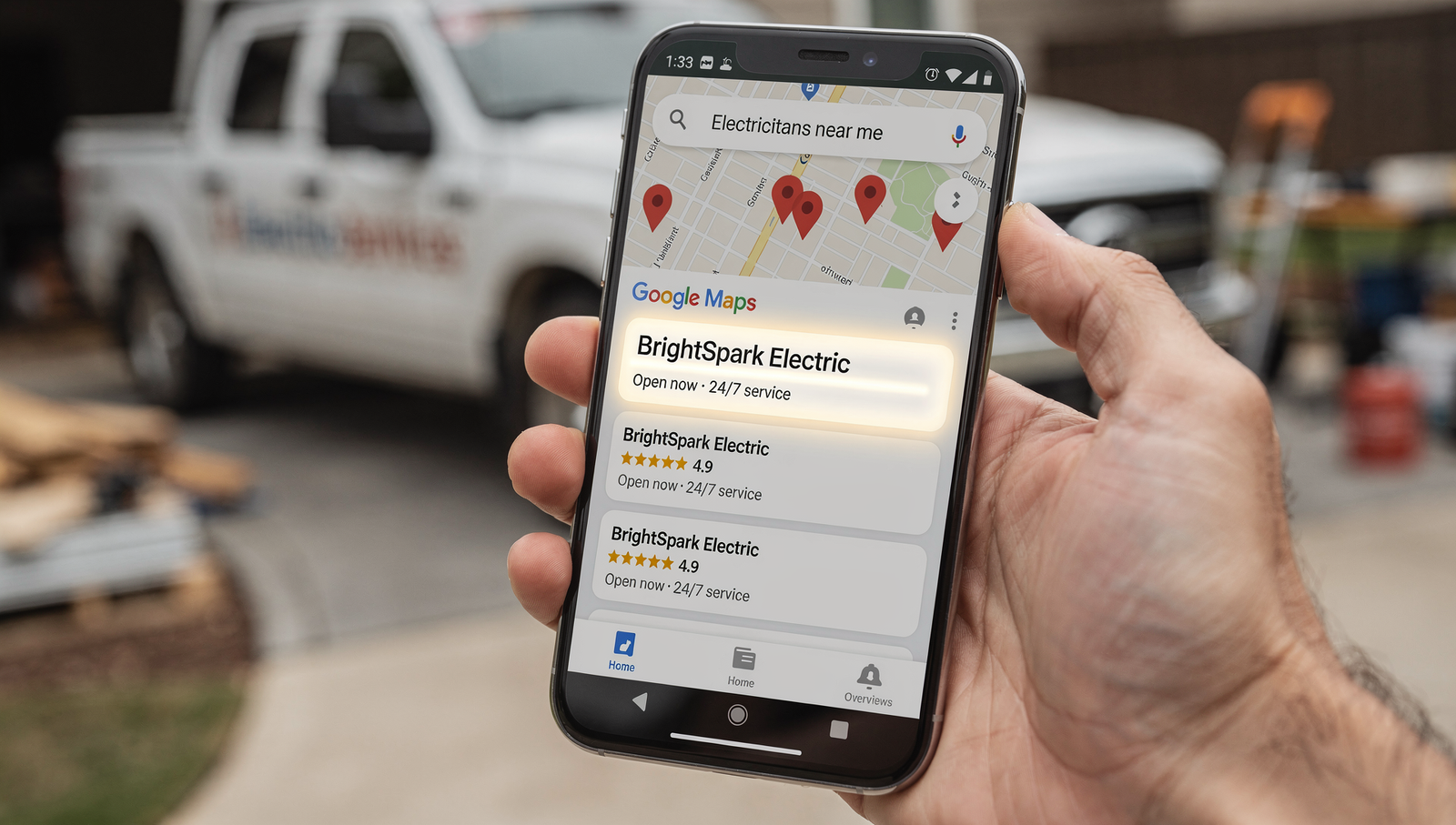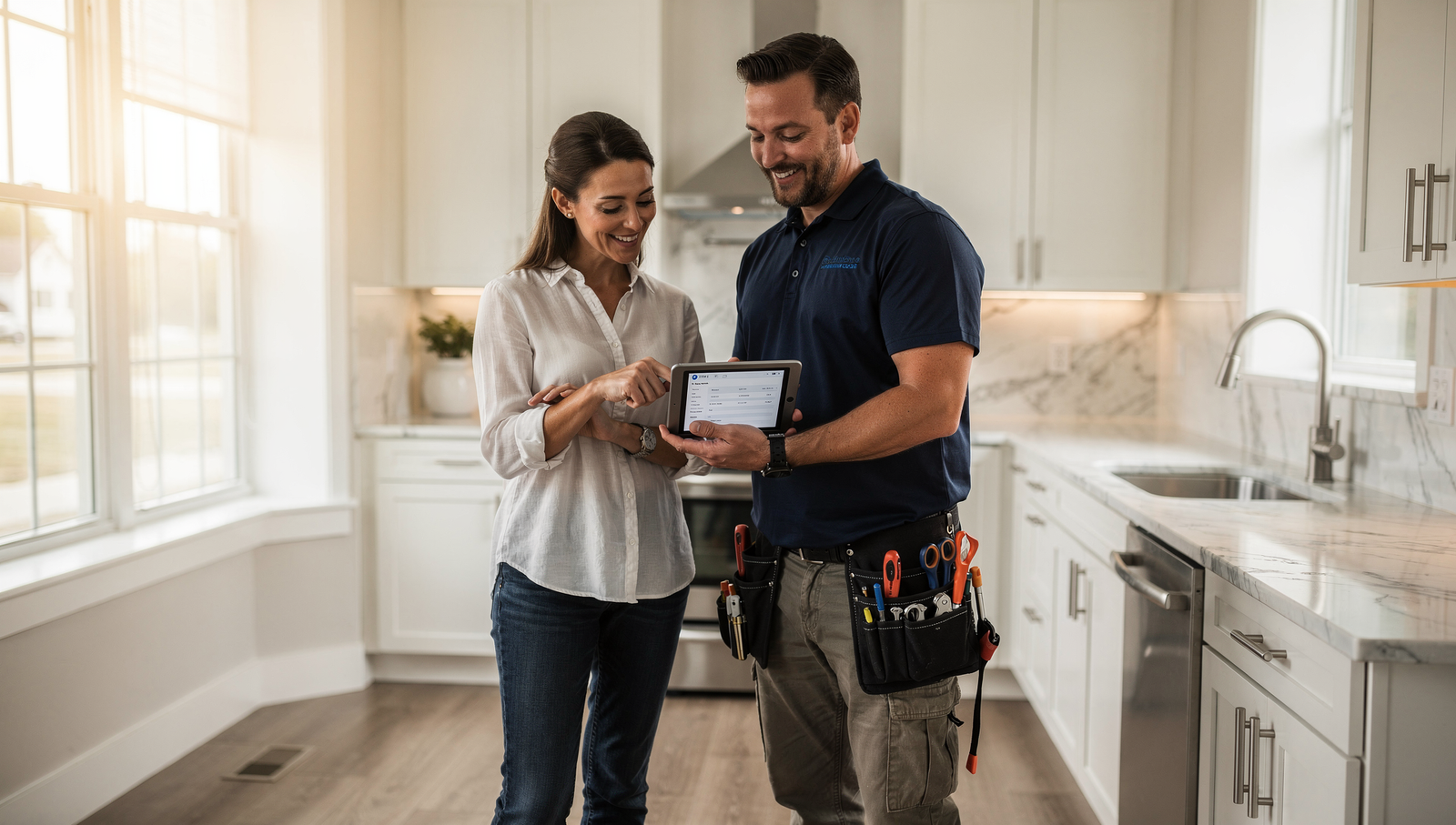10 Local SEO Tricks Driving Free Seller Leads for Realtors
Watch the video to learn how one of our realtor clients doubled their internet traffic and organic seller leads in 60 days!
Want More Clients Fast?
Steal This Website Rescue Kit to Get More Clients, More Calls, and More Sales on Autopilot
In today’s digital-first real estate landscape, dominating Google’s local search results isn’t just advantageous…it’s essential. With over 90% of homebuyers initiating their property search online, ensuring your visibility in local searches can be the difference between closing deals and missing opportunities. This comprehensive guide unveils actionable strategies to elevate your local SEO game, positioning you as the go-to realtor in your community.
1. Optimize Your Google Business Profile (GBP)
Your Google Business Profile is often the first impression potential clients have of your services. An optimized GBP enhances your visibility in local searches and builds trust with prospective clients.
Steps to Optimize:
Claim and Verify: Ensure you’ve claimed your GBP and verified your business information.
Complete Every Section: Fill out all details, including business hours, services offered, and contact information.
High-Quality Photos: Upload professional images of your listings, office, and team to showcase your brand.
Encourage Reviews: Actively request reviews from satisfied clients and respond promptly to feedback.
Utilize Posts: Regularly update your GBP with posts about new listings, open houses, or market updates.
A well-maintained GBP can significantly boost your local search rankings and attract more clients.

2. Target Hyper-Local Keywords
While broad terms like “real estate agent” are highly competitive, focusing on hyper-local keywords can yield better results.
Strategies:
Neighborhood-Specific Terms: Use keywords like “homes for sale in [Neighborhood Name]” or “condos in [Specific Area]”.
Long-Tail Keywords: Incorporate phrases that potential clients might use, such as “best schools in [City]” or “pet-friendly apartments in [Area]”.
Use Keyword Research Tools: Platforms like Ubersuggest or Wordstream can help identify valuable local keywords.
By aligning your content with the specific terms your target audience uses, you increase the likelihood of appearing in relevant searches.
3. Create Location-Specific Content
Developing content tailored to specific neighborhoods or communities positions you as a local expert.
Content Ideas:
Neighborhood Guides: Highlight amenities, schools, parks, and other features of specific areas.
Market Updates: Provide regular insights into local real estate trends and statistics.
Community Events: Share information about upcoming events or local news that might interest potential buyers.
Such content not only aids in SEO but also builds trust with your audience by showcasing your in-depth local knowledge.
4. Ensure NAP Consistency Across All Platforms
NAP stands for Name, Address, and Phone number. Consistency in this information across all online platforms is crucial for local SEO.
Tips:
Audit Your Listings: Regularly check directories, social media profiles, and other platforms to ensure your NAP details are consistent.
Use a Standard Format: Decide on a specific format for your business name and stick to it across all platforms.
Update Changes Promptly: If you move offices or change phone numbers, update this information everywhere immediately.
Inconsistent NAP information can confuse search engines and potential clients, negatively impacting your search rankings.

5. Build Local Backlinks
Backlinks from reputable local websites signal to search engines that your site is trustworthy and relevant to the local community.
How to Acquire:
Collaborate with Local Businesses: Partner with local businesses for events or promotions and get featured on their websites.
Sponsor Community Events: Sponsoring events can lead to mentions and links from event pages or local news outlets.
Engage with Local Bloggers: Offer to provide expert insights or guest posts on local blogs.
These backlinks not only boost your SEO but also increase your visibility within the community.
6. Optimize for Mobile Users
With a significant number of property searches conducted on mobile devices, ensuring your website is mobile-friendly is essential.
Optimization Tips:
-
Responsive Design: Ensure your website adjusts seamlessly to different screen sizes.
-
Fast Loading Speeds: Compress images and utilize efficient coding practices to reduce load times.
-
Simplified Navigation: Make it easy for users to find listings, contact information, and other essential details.
A mobile-optimized website enhances user experience and can positively influence your search rankings.
7. Leverage Online Reviews
Positive reviews not only build trust with potential clients but also play a role in local search rankings.
Best Practices:
-
Request Reviews: After successful transactions, kindly ask clients to leave reviews on platforms like Google, Zillow, or Yelp.
-
Respond to Feedback: Engage with all reviews, thanking clients for positive feedback and addressing any concerns raised.
-
Highlight Testimonials: Feature glowing reviews on your website and marketing materials.
Active management of your online reputation can differentiate you from competitors and instill confidence in prospective clients.

8. Utilize Structured Data Markup
Implementing structured data (schema markup) helps search engines better understand your website’s content, potentially leading to enhanced search result listings.
Benefits:
Rich Snippets: Display additional information like ratings, prices, or availability directly in search results.
Improved Click-Through Rates: Enhanced listings can attract more clicks from users.
Better Indexing: Search engines can more accurately index your content, improving visibility.
By providing clear context about your listings and services, structured data can give you an edge in search rankings.
9. Engage with Local Directories and Citations
Being listed in reputable local directories increases your online presence and provides valuable backlinks.
Steps:
-
Identify Relevant Directories: List your business on platforms like Realtor.com, Zillow, and local chamber of commerce websites.
-
Ensure Accurate Information: Maintain consistent NAP details across all listings.
-
Update Regularly: Periodically review and update your listings to reflect any changes in your business.
These listings not only aid in SEO but also make it easier for potential clients to find and contact you.
10. Monitor and Analyze Your SEO Performance
Regularly assessing your SEO efforts ensures you’re on the right track and allows for timely adjustments.
Tools to Use:
-
Google Analytics: Track website traffic, user behavior, and conversion rates.
-
Google Search Console: Monitor search performance, identify indexing issues, and understand how Google views your site.
-
SEO Platforms: Tools like SEMrush or Ahrefs can provide insights into keyword rankings, backlinks, and competitor analysis.
By staying informed about your website’s performance, you can make data-driven decisions to enhance your local SEO strategy.
Conclusion
Dominating Google’s local search results requires a multifaceted approach, combining technical optimization, content creation, and community engagement. By implementing the strategies outlined above, you position yourself as a trusted local expert, making it easier for potential clients to find and choose your services. Remember, consistency and ongoing effort are key…local SEO is not a one-time task but a continuous journey towards online prominence.
Want all of this done for you? Contact Digital Dream Homes today for a free strategy call.
Matt Pieczarka
Want a Free Website Audit?
Fill out your information below and we will send you a personal screen share video of tips on how to make your actual website better!
Other Posts You Might Like…
- Free SEO Tracking Tools for Small Business That Actually Work
- How Long to Rank Small Business Website on Google? The Real Timeline
- Importance of Google Reviews for Small Business: Rank Faster, Earn Trust
- SEO Mistakes Small Business Owners Make: Fix These Fast
- SEO Blogging Tips For Small Business: Write Posts That Rank
- Backlinks for Small Business Websites: Why Backlinks Matter for Local Businesses
- On-Page SEO Checklist for Small Business Websites
- Google Business Profile Setup for Small Business: The Beginner’s Guide
- Local SEO for Small Businesses: Tips for Small Business Owners
- What is a Listicle and Why Your Website Needs One
9 Electrician Facebook Marketing Moves That Book Jobs Fast
9 Electrician Facebook Marketing Moves That Book Jobs Fast Add hook and selling point here Want More Clients Fast? Steal This Website Rescue Kit to Get More Clients, More Ca
10 Social Media Marketing for Electricians Ideas That Win Jobs
10 Social Media Marketing for Electricians Ideas That Win Jobs Watch the video to learn exactly how we run our clients’ social media accounts to turn followers into cl
5 Electrician Social Media Agency Pros and Cons
5 Electrician Social Media Agency Pros and Cons Watch the video to learn exactly how we get our clients more sales by running every aspect of their social media! From a team
5 Electrician Social Media Marketing Plays That Win Clients
5 Electrician Social Media Marketing Plays That Win Clients Watch the video to learn how we can take over your social media marketing for your electrician business to turn f
11 Electrician SEO Tips That Get You More Calls Fast
11 Electrician SEO Tips That Get You More Calls Fast Watch the video to learn about the ultimate easy SEO hack to get your business in front of as many people online as possible by
9 Electrician Search Engine Optimization Wins That Get Calls
9 Electrician Search Engine Optimization Wins That Get Calls Watch the video to learn the perfect content workflow for maximum seo exposure! https://youtu.be/Q2PrdWBpflI?si=378ZF_E
5 Electrician SEO Expert Moves That Get You Calls
5 Electrician SEO Expert Moves That Get You Calls Watch the video for the perfect content workflow to maximize your seo for your electrician business! https://youtu.be/Q2PrdWBpflI?
9 Local SEO Moves For Electricians To Dominate Locally
9 Local SEO Moves For Electricians To Dominate Locally This exact local SEO strategy helped one of our electrician clients go from barely showing up on Google to getting 18 inbound
9 Electrician SEO Marketing Tactics to Land High-Value Jobs
9 Electrician SEO Marketing Tactics to Land High-Value Jobs One of our electrician clients went from relying almost entirely on referrals to booking consistent high-ticket jobs eve









